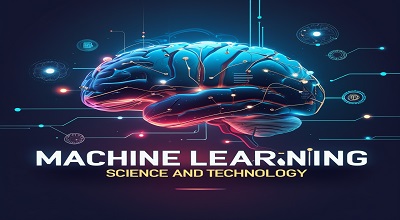Machine Learning Science
Machine Learning Science: Machine learning (ML) has emerged as a transformative force across various sectors, revolutionizing how we interact with technology and data. This article delves into the latest advancements in machine learning science and technology, exploring its applications, methodologies, and future prospects.
Introduction to Machine Learning
Machine learning is a subset of artificial intelligence (AI) that focuses on developing algorithms that allow computers to learn from and make predictions based on data. Unlike traditional programming, where explicit instructions are given. Machine learning enables systems to improve their performance as they are exposed to more data.
The Evolution of Machine Learning
The roots of machine learning can be traced back to the mid-20th century. With significant milestones including the development of the perceptron in 1958 and the introduction of backpropagation in the 1980s. However, it wasn’t until the advent of big data and increased computational power in the 21st century that machine learning truly began to flourish.
Key Concepts in Machine Learning
Types of Machine Learning
- Supervised Learning: Involves training a model on a labeled dataset. Where the desired output is known. Common applications include classification and regression tasks.
- Unsupervised Learning: Involves training a model on data without labeled responses. This approach is often used for clustering and association tasks.
- Reinforcement Learning: A type of learning where an agent learns to make decisions by taking actions in an environment to maximize cumulative reward.
Machine Learning Algorithms
Several algorithms are foundational to machine learning, including:
- Linear Regression: Used for predicting a continuous outcome based on one or more predictor variables.
- Decision Trees: A flowchart-like structure used for classification and regression tasks.
- Neural Networks: Inspired by the human brain, these are used for complex pattern recognition tasks, particularly in deep learning.
Latest Trends in Machine Learning
Advances in Deep Learning
Deep learning, a subset of machine learning, has gained significant traction due to its ability to process vast amounts of data and extract intricate patterns. Recent advancements include:
- Transformers: Revolutionizing natural language processing (NLP) tasks, transformers have enabled models like GPT-3 to generate human-like text.
- Generative Adversarial Networks (GANs): These networks generate new data samples that resemble a given dataset, and they have applications in image and video generation.
Machine Learning in Healthcare
Machine learning is making waves in healthcare, with applications ranging from predictive analytics to personalized medicine. Recent studies have shown that ML algorithms can predict patient outcomes, assist in diagnostics, and even aid in drug discovery.
Ethical Considerations and Bias in Machine Learning
As machine learning systems become more prevalent, ethical considerations surrounding bias and fairness have come to the forefront. Researchers are actively working on methods to identify and mitigate biases in training data to ensure equitable outcomes.
Applications of Machine Learning
Industry Applications
- Finance: Machine learning algorithms are used for fraud detection. Risk assessment, and algorithmic trading.
- Retail: Personalized recommendations and inventory management are enhanced through machine learning techniques.
- Transportation: Self-driving cars utilize deep learning for object detection and navigation.
Emerging Applications
- Smart Cities: Machine learning is being integrated into urban planning to optimize traffic flow and resource allocation.
- Agriculture: Precision farming techniques leverage machine learning for crop monitoring and yield prediction.
Future Prospects of Machine Learning
Integration with Other Technologies
The future of machine learning lies in its integration with other emerging technologies such as the Internet of Things (IoT), blockchain, and quantum computing. This convergence is expected to unlock new capabilities and efficiencies across various sectors.
Continuous Learning and Adaptation
As machine learning models are deployed in real-world scenarios. The ability to continuously learn and adapt will become increasingly important. Techniques such as online learning and transfer learning will play a crucial role in this evolution.
Read here: Max The Elf APK
Challenges in Machine Learning
Data Privacy and Security
With the increasing reliance on data, concerns regarding privacy and security are paramount. Ensuring that machine learning systems comply with regulations such as GDPR is essential for maintaining user trust.
Interpretability of Models
As machine learning models become more complex, understanding their decision-making processes becomes challenging. Research into model interpretability is crucial for building transparent and accountable AI systems.
Conclusion
Machine learning is at the forefront of technological innovation, with its applications spanning numerous industries. As we continue to explore its potential, addressing ethical considerations and ensuring the responsible use of technology will be vital for harnessing its benefits.
FAQs
1. What is machine learning?
Machine learning is a branch of artificial intelligence that focuses on the development of algorithms that allow computers to learn from and make predictions based on data.
2. What are the main types of machine learning?
The main types of machine learning are supervised learning, unsupervised learning, and reinforcement learning.
3. How is machine learning used in healthcare?
Machine learning is used in healthcare for predictive analytics, diagnostics, personalized medicine, and drug discovery.
4. What are some challenges associated with machine learning?
Challenges include data privacy and security, model interpretability, and addressing biases in training data.
5. What is the future of machine learning?
The future of machine learning involves integration with other technologies, continuous learning, and addressing ethical considerations to ensure responsible use.
